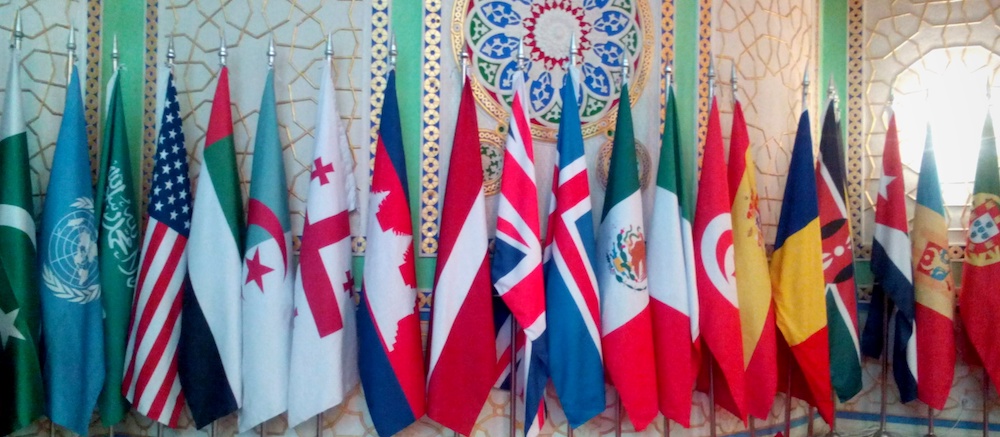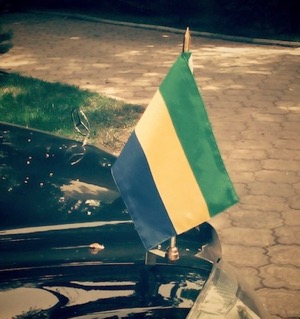Science Diplomacy
The most interesting ideas happen at the edges. I analyze how, where and why people collaborate across borders.
What | How | My work

Images: @sdaultrey, Tajikistan, 2015
What is 'Science Diplomacy'?
The language of science and the cross-border relationships created through scientific exchange are a core feature of international relations, since at least the 3rd Century BC. The laws of physics and mathematics work equally well, everywhere. Scientific values of transparency and logic are shared worldwide — irrespective of different views about the role for science in society.
Sharing scientific discovery has contributed to building better communications and relationships between countries, even during times of conflict. For example, the collaboration between British, Russian and American geophysicists that laid the foundation for the theory of plate tectonics continued throughout the Cold War.
Evidence from decades of research informs global political discussions and cooperation on climate science, infectious disease and energy security.
How it's done

Science diplomacy describes broadly three activities:
- Science in diplomacy – Providing scientific advice and evidence to inform foreign policy (e.g. a decision to render aid to a another country dealing with a disease outbreak, monitoring movement of nuclear materials);
- Diplomacy for science – Facilitating international science cooperation (e.g. managing and funding research partnerships between two or more nations, negotiating access to research facilities in another country);
- Science for diplomacy – Navigating and enhancing relationships between two or more countries (e.g. the International Maritime Organization; the Arctic Council Task Force for Enhancing Scientific Cooperation in the Arctic).
My contributions
Since 2003 I have worked on research projects, conferences and in-field analysis in the US, UK, Central Asia, India and Singapore. I've worked in Central Asia since 2008, mostly in Kyrgyzstan (2012-13; 2015; 2017) and Tajikistan (2012; 2015).
Most of my writing and analyses are not in the public domain; following is a selection of my published contributions, most of which are available online:
Writing
- Briefing papers, background and situational analysis for a civil service training series in the British Virgin Islands (June-July 2018)
- Human collaboration in homeland security: the role for science diplomacy (February 2017)
- Ideas that matter (August 2016)
- UN Summit on Water and Mountains, Tajikistan - observation, analysis and report editing for the Central Asia Mountain Partnership
- Assessing UK – India research partnerships - three reports and analysis for the UK Research Councils at the British High Commission, New Delhi (July 2013; December 2015. See also press coverage in Times Higher Education, 17 August 2013
- An energy technology roadmap for Singapore (2011)
- What makes for successful international collaboration? - a paper for the Royal Society enquiry on the globalisation of science (May 2010)
My participation at conferences and seminars
| 06-2015 | Presented a paper, 'Technology at the edges: border places as living laboratories', at the 15th International Technology Policy and Innovation conference, UK |
| 06-2015 | Writer and analyst at an international summit convened by the UN, in Dushanbe, Tajikistan, on regional water security and climate science |
| 10-2013 | Gave a presentation on knowledge networks in High Asia at the Yale Himalaya research group, Yale University |
| 07-2011 | Presented a paper at 'Climate science and climate variability', an international conference at the Indian Institute of Science, Bangalore |
| 10-2009 | Facilitated working groups and wrote the conference declaration (with J. Falk) at 'Climate science - assess regionally, act locally', an international conference in Srinagar, Kashmir |
| 10-2009 | Facilitated working groups and wrote the conference declaration (with J. Falk) at 'Climate science - assess regionally, act locally', an international conference in Srinagar, Kashmir |
| 02-2009 | Facilitated working group and wrote the meeting report for 'Russia, Energy and the Rule of Law', an expert working group at the University of Cambridge |
| 12-2008 | Observor to an international seminar, 'Azerbaijan in 2020', Azerbaijan Diplomatic Academy, Baku |
